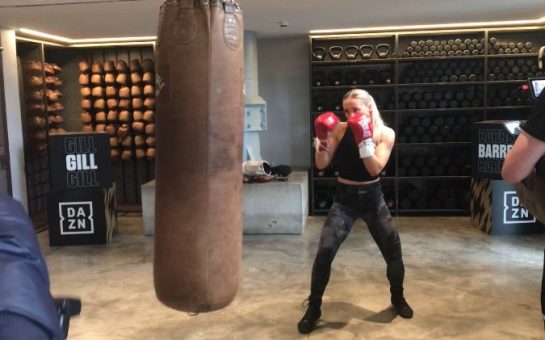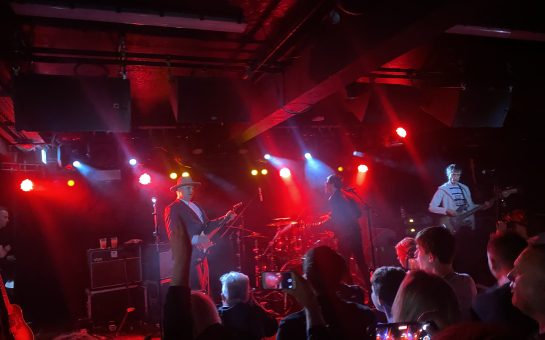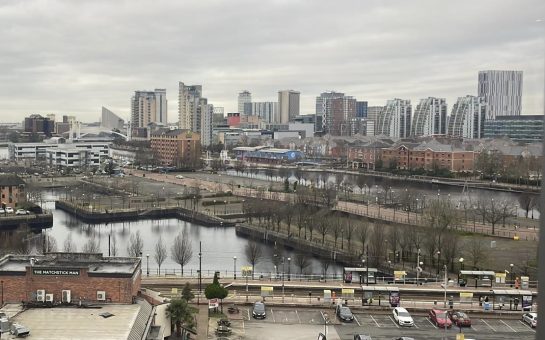Chancellor Rishi Sunak’s “Eat out to Help Out” scheme launched on Monday, aiming to boost the hard-hit hospitality sector.
Over 72,000 restaurants, cafés and pubs have embraced the initiative, which gives punters fifty per cent off food and non-alcoholic drinks when they dine-in, capped at £10.
Sunak said last week: “[The] Eat Out to Help Out scheme is designed to get more customers through the door – protecting jobs by giving businesses the confidence to retain and hire staff.”
This is no easy task. The Office for National Statistics reported in July that less than a third of adults felt comfortable dining inside a restaurant, while fewer than half felt the same about eating outside.
And in Manchester, a range of new flaws are emerging.
Risky business
Late on Friday night, the government announced a series of “local restrictions” for Greater Manchester, Lancashire and West Yorkshire, due to a rising infection rate.
These told people to “avoid” contact with others inside public places, while those from two separate households could meet up outside, if socially distanced, in groups of six or less.
The guidelines advised the staff and owners of bars, pubs and cafés to “take steps” to prevent illicit gatherings.
But in most cases, customers have been trusted with this responsibility, making the checks easy to flout.
Takk, which operates three coffee shops in Manchester, said on Instagram: “We are not going to police you and we trust you are doing the right thing.”
When pressed about their protocols on twitter, Common, a bar in the Northern Quarter, added: “We’re asking people to be honest…people just need to tell the truth or don’t come.”
Businesses were not given any prior warnings or funds to enforce the restrictions, making their job extremely difficult.
Despite this, close monitoring isn’t taking place at a time when Sage scientists warn further measures may be needed to avoid a “second wave”.
The risks became glaringly clear last week when 19 people tested positive for the virus after attending the Crown and Anchor pub in North Staffordshire.
The forgotten traders
For some, “Eat Out to Help Out” has raised hopes of a financial windfall after months of disastrous trading.
“We anticipate a significant increase in sales, maybe not that much in the first week, but going forward for August, especially if the weather remains nice,” Kerrie Anderson of café Eastern Block told MM.
Other hospitality businesses felt let down, however, as without a dedicated seating area and a food and non-alcoholic drinks menu, they can’t qualify.
“Wet sales [drinks sales] across the board have been quite poorly treated by government legislation,” said Cherish Eshelman, events manager at Lock 91, a bar which just offers beverages.
“While the scheme is great for restaurants, it has neglected many small and independent grassroots businesses.”
Food truck owners also can’t take advantage of the scheme, with many suffering since the start of the pandemic.
“The mobile catering sector absolutely needs additional government support as soon as possible,” said Mark Laurie, a director of the Nation Wide Caters Association.
“The whole festival sector shut down, meaning those guys haven’t earned money since September 19, and aren’t likely to earn again until Spring 2021.”
Even if August trading does exceed expectations, there’s still no lasting solutions for the sector.
Jointly owned chains Zizzi and Ask shut 75 sites three weeks ago, leading to 1200 job losses, while Pizza Express is expected to close 67 of its restaurants soon, resulting in a further 1100 redundancies.
“[The] prosperity of businesses will not hinge on a discount scheme, but if they continue to trade long term,” a spokesperson from Manchester City Council told MM.
‘Muddled thinking’
Aside from the scheme, the government unveiled its “new obesity strategy” at the end of last week, intended to “get the nation fit and healthy”.
Its proposals included an end to “buy one get one free” deals on food high in salt, sugar and fat, along with a ban on fast food advertising before 9 PM.
“If we all do our bit, we can reduce our health risks and protect ourselves against coronavirus – as well as taking pressure off the NHS,” said Prime Minister Boris Johnson.
While many, including TV chef Jamie Oliver, have welcomed the new strategy, its goals clash wildly with “Eat Out to Help Out”, which began just a few days later.
Outlets like McDonald’s, Burger King and Nando’s, for example, have slashed prices on their chips, burgers and fried chicken, in line with the discount scheme.
This had industry stakeholders scratching their heads about the government’s overarching aims and direction.
“It looks like muddled thinking,” said Rob Meakin, managing director of Chester based company Loyalty Pro, which works with restaurants and bars.
“I do find it ironic that at a time when they’re stating they wish to tackle obesity and are specifically targeting ‘bogof’ offers, they are encouraging us to fill our faces.”
Image courtesy of Andrea Piacquadio, with thanks.



